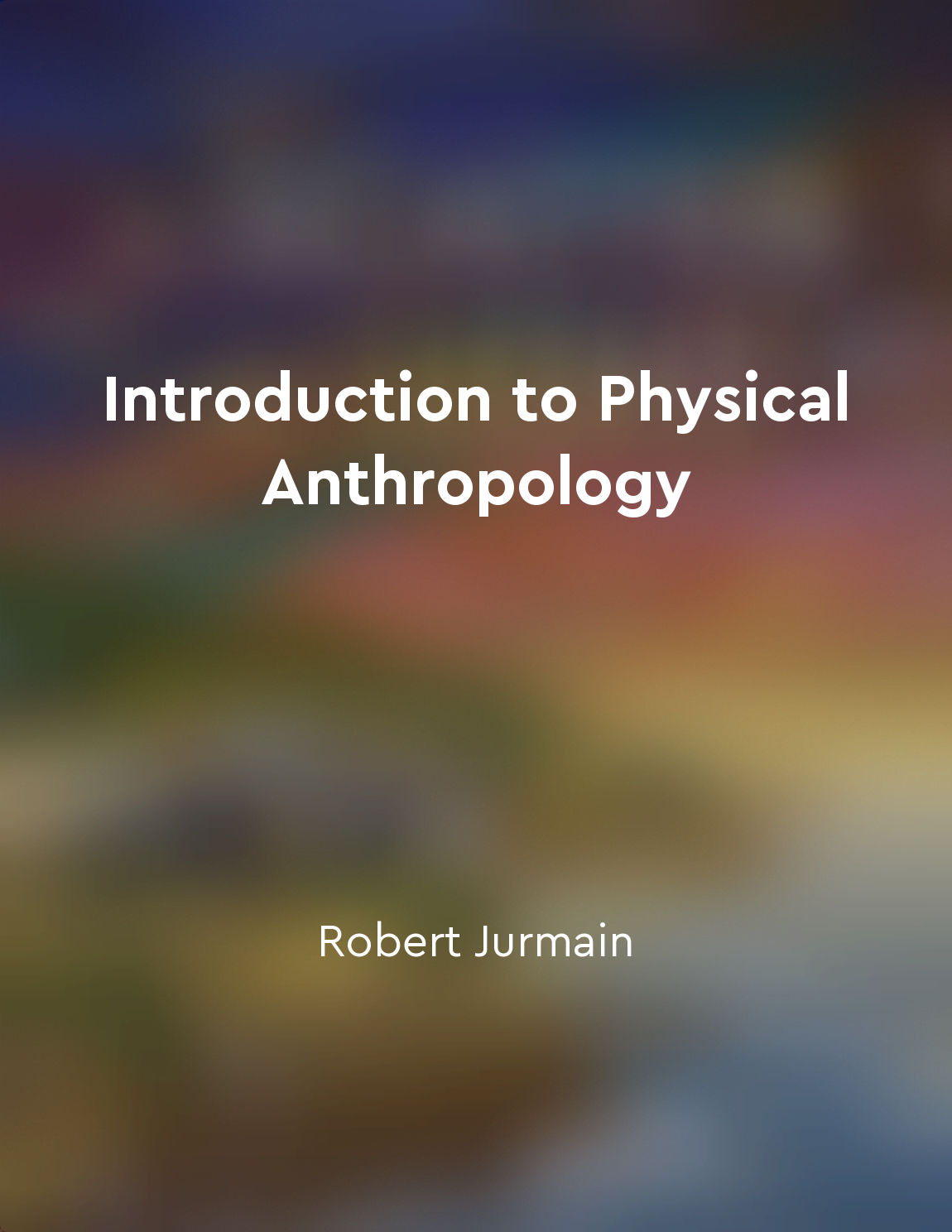Primate behavior can shed light on human social structures from "summary" of Introduction to Physical Anthropology by Robert Jurmain,Lynn Kilgore,Wenda Trevathan,Russell L. Ciochon,Eric J. Bartelink
Primate behavior offers valuable insights into the social structures of humans. By observing primates in their natural habitats, anthropologists can draw parallels between primate behaviors and human behaviors, providing a deeper understanding of our own social systems. For example, the study of primate hierarchies can help us understand the formation of social classes in human societies. Just like in primates, humans often organize themselves into hierarchical structures based on dominance and submission. By studying how primates establish and maintain their social ranks, we can gain a better understanding of the power dynamics at play in human social groups. Furthermore, primate behavior can shed light on the evolution of human social behaviors. Many of the behaviors exhibited by primates, such as cooperation, conflict resolution, and communication, have clear parallels in human societies. By studying how these behaviors have evolved in primates over time, we can gain insights into the origins of similar behaviors in humans. Additionally, the study of primate social structures can help us understand the role of kinship and social bonds in human societies. Primates often form close-knit social groups based on familial relationships, alliances, and friendships. By examining how these relationships influence behavior and decision-making in primate groups, we can gain insights into the importance of kinship and social bonds in human communities.- Primate behavior provides a valuable window into the social structures of humans. By drawing parallels between primate behaviors and human behaviors, anthropologists can gain a deeper understanding of the complexities of human social systems. By studying primate hierarchies, social behaviors, and kinship dynamics, we can uncover valuable insights into the evolution and functioning of human societies.
Similar Posts
Our instincts can sometimes lead us astray
It is a common belief that our instincts are always reliable guides to behavior. After all, it is through millions of years of ...
Genetic variation is essential for evolution
Genetic variation is the raw material on which natural selection acts. Without variation, there would be nothing for natural se...
Genetic information is central to life
The fundamental idea that genetic information is central to life lies at the heart of our understanding of biology. It is throu...
The brain is constantly changing in response to new experiences
Our brains are not fixed entities, but rather, they are constantly adapting and evolving in response to the world around us. Ev...

Technology has dramatically changed human society in the past century
Technology, more than anything else, has transformed human society over the past century. The pace of technological advancement...
Radical ideas have the power to reshape society
In history, radical ideas have often been the driving force behind significant societal changes. These ideas, which challenge t...

Human beings are storytelling animals
Human beings are unique in their ability to communicate through complex language. This ability allows us to convey not just inf...
Cultural cognition leads to cultural evolution
Cultural cognition is the process by which individuals acquire, store, retrieve, and use information about their cultural envir...

Humans have a variety of sexual desires
In our natural state, as we evolved over millions of years, human beings did not confine themselves to monogamous relationships...
Environmental changes can drive rapid evolution
In the grand scheme of life on Earth, organisms have been engaged in a never-ending battle of survival. This battle is fought n...


